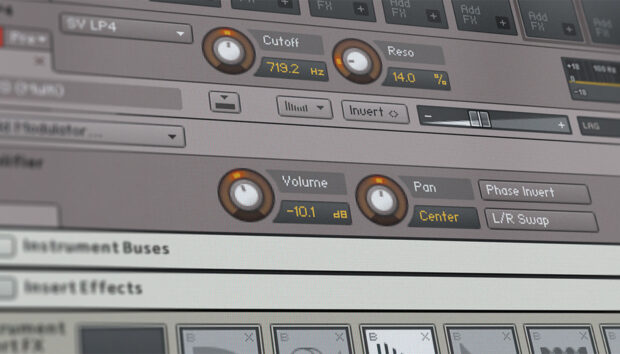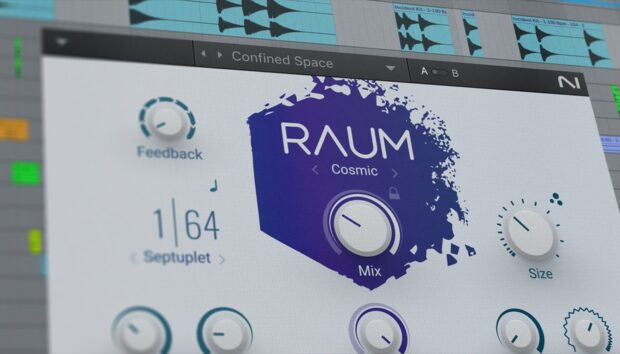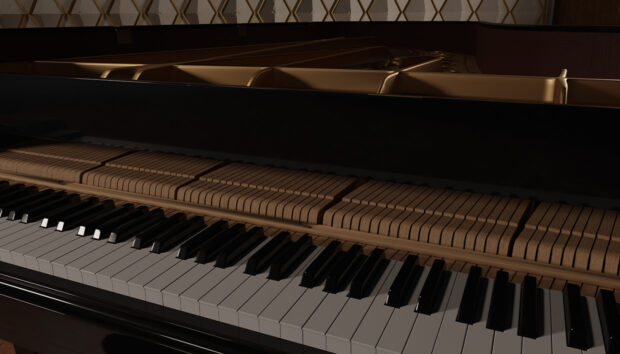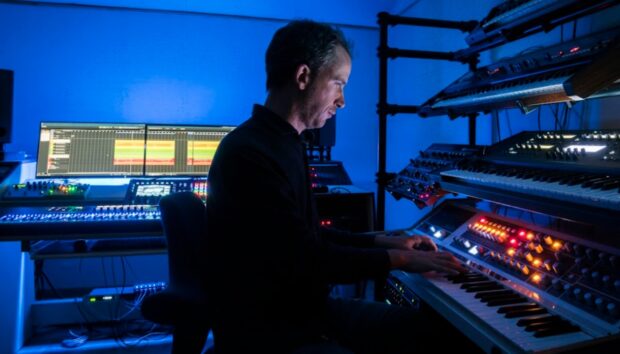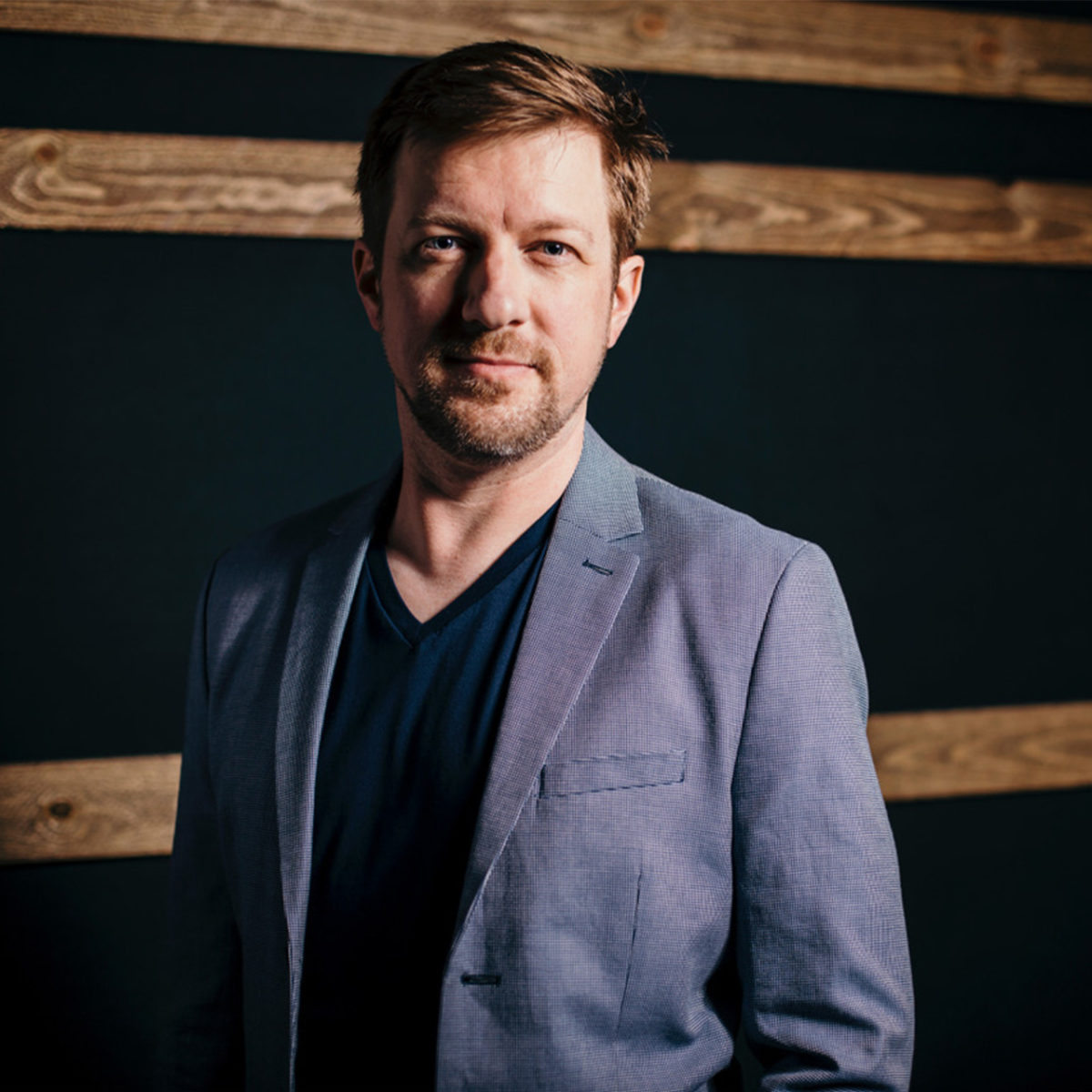
Nathan Lanier is a composer to look up to. Over his twenty-year career, the LA-based artist has scored some massive projects in the world of film and games, ranging from the pop rush of Justin Bieber’s concert film Believe to the hit sci-fi web series Halo 4. Last month, Lanier’s latest soundtrack premiered as part of Apple TV+’s new thriller Home Before Dark. Fascinated by such a diverse portfolio of cinematic work, we sat down with the composer to get insider wisdom from Hollywood’s frontline.
Have you ever watched a film and been so swept up in the score you decided then and there that’s what you wanted to do for a living? For Nathan Lanier, the inspiration came on the streets around him, as a student growing up in New York.
“I had always loved film,” Lanier says. “Every day on my way to school, I would walk past a film shoot. I kind of felt like something was missing and I started one summer, writing a little bit of music just to try my hand at it and see what happens.”
Fast forward a few decades, and what’s happened is remarkable. Lanier has worked on scores for many popular titles in film, TV, games and commercials. More importantly, the projects are full of contrasting genres, moods, and mediums, showcasing the breadth of both his artistry and professional capabilities. Lanier’s portfolio includes, for example, the upbeat choreographed rhythms of the popular dance films High Strung, to maximizing the tension on genre thrills like Max Steel. Along the way, he’s also scored commercials for Microsoft and American Express.
Nathan sounds bright and full of energy on the phone from his home in LA, where he’s enthusing about scoring Apple TV+’s new show Home Before Dark, an atmospheric mystery thriller that combines the sharp edge of a contemporary web-series while harking back to those great Amblin films of the 80s. I tell him certain elements reminded me of a John Williams score.
“One of the things that the creators Dana Fox, John M. Chu and Dara Resnik really liked about that era was a lot of the movies were shown through the eyes of children. We wanted to capture that magic in the music but also it needed a modern hybrid twist.”
To capture a hint of retro wonderment while still subverting expectations, Lanier turned to his sonic pallet. He mixed his background in classical orchestration with subtle touches associated more readily with electronic producers. This is how Native Instruments’ Reaktor found its way into the mix.
“I wanted to create something that sounded like the musical equivalent of an emotionally upset stomach.
“Everything’s kind of centered around this VHS videotape player,” Lanier says, referring to this free ensemble from the User Library. “It becomes almost a—I don’t want to say character—but certainly a central object within the story.”. Lanier was inspired by that wobbly pitch-altering quality familiar to anyone who can remember reaching over and adjusting the tracking on their video. He goes on: “I wanted to create something that sounded like the musical equivalent of an emotionally upset stomach. I recorded cello, and then used Reaktor to create a sound that blends with it, to create this kind of VHS warbly pad, if you will.”
Reaktor is only one of the go-to Native Instruments products in Lanier’s sonic armoury. It’s a relationship that has formed a strong backbone to his studio since someone introduced him to Kontakt around fifteen years ago.
“The Kontakt player is so versatile,” Lanier says. “I write in Logic and my current template is about 381 tracks. I would say probably 95% of all of those tracks are being run through Kontakt. Almost all the instruments are either Kontakt instruments or third party sample libraries that use Kontakt. it’s really the backbone of the operation.”
Lanier’s use of Native Instruments tools complements his classical training. Although he grew up in a music loving household, he and his siblings were the first generation to take this love into academic study. It was while studying violin at the prestigious Mannes School of Music in New York that the young Nathan would glimpse film shoots on the street. Inspired, he says: “I used some of my student loan money to buy my first computer and keyboard and what was a Roland XV5080, my first synth.” Eventually, this would lead to his first professional job.
“I got to work with Howard Shore a little bit as an assistant on the second Lord Of The Rings movie.” Following a relocation to LA, along came his first feature: a low budget movie made by a group of stuntmen. Lanier chuckles with recollection: “I think I got like 500 bucks to score ninety minutes of music.”
The Nathan I speak with on the phone today has that uniquely-LA combination of self-assuredness and sun-kissed zen. He tells me: “The successful people in Hollywood are the people that didn’t go home.” Yet, at moments he’s disarmingly self-reflective too, offering up nuggets I’m sure all us home producers can relate to. Lanier confesses: “You know how many times I have written something at night and I’ve convinced myself I’m a complete genius? And then the next morning I listened to it and I start to reconsider my entire life.”
But what advice would he give to those setting out on the arduous path of scoring?
“When you’re first starting out you have these preconceived notions of how things are, but also how you want things to be. It’s so easy to get disappointed because you get into a situation and you’re like, ‘this is not at all what I thought it would be. I think it’s very important to set goals and to pursue those goals. But as twists and turns come—which they will—and when things don’t turn out the way you thought, then go with the flow and adapt and enjoy the process and also enjoy the moment.”
Lanier continues: “I have a team of people that work for me and sometimes we’ll get somebody new in and we’ll be working on a piece of music and I’ll say, ‘this moment right here where you’re really excited about how this sounds? Enjoy that moment right now because this is the last time you’re going to enjoy it. Because what’s going to happen is you’re going to send it off and the client’s going to change it. And ultimately, they’re a pro and they’re probably going to change it for what’s best for the project, but it’s no longer going to be that original thing that you made.’ ”
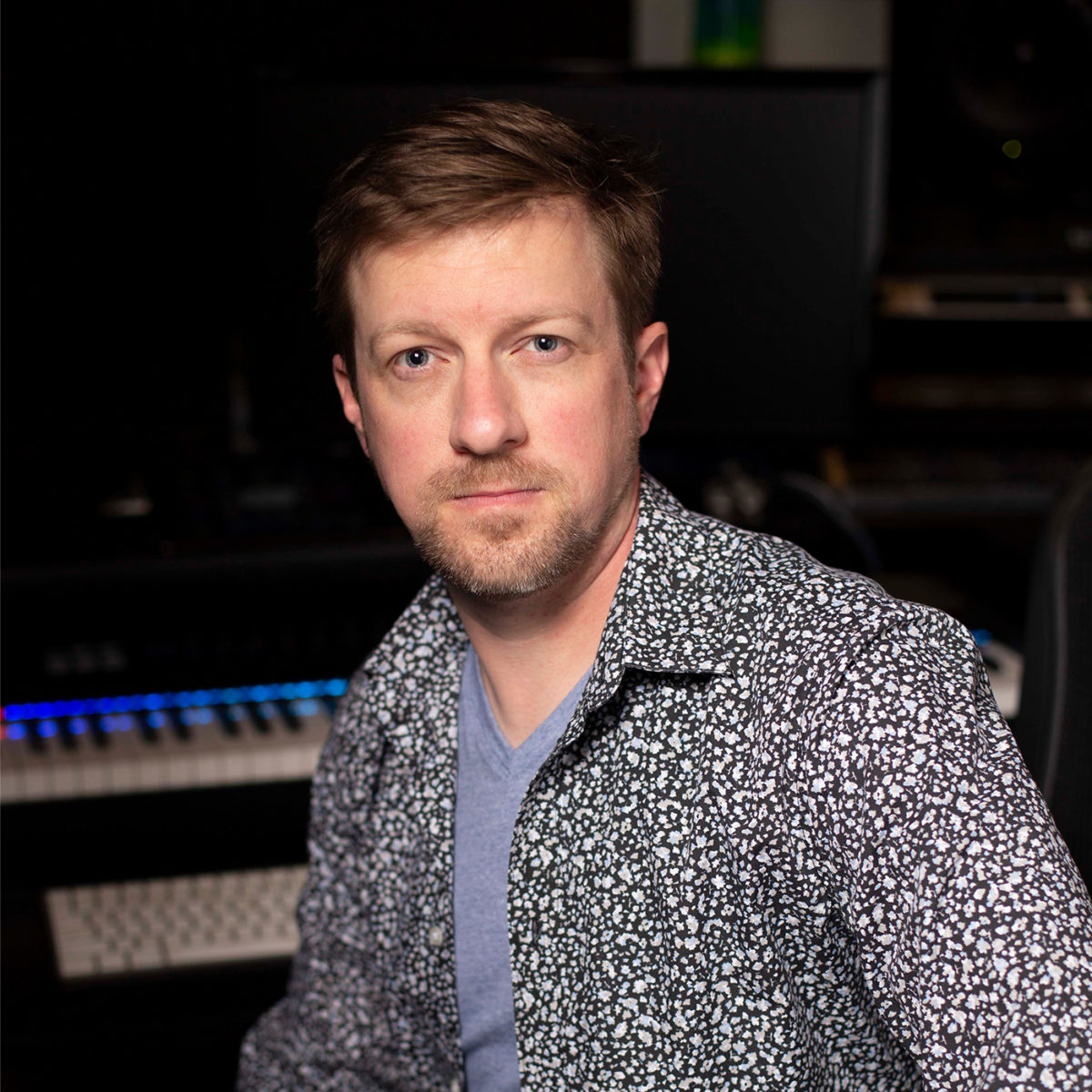
In film, way more than in being in a band or working as a solo producer, Lanier emphasises the crucial role of team work over individual ego.
“So often as artists we get stuck in the importance of our individual voice,” he says. “We get so disappointed when it goes out and somebody changes it. They make the music too soft or they cut this cue or that. But we’re all contributing here, we all have to give and take, particularly in film and TV, it’s a collaborative art.”
Lanier emphasises the importance on serendipity, particularly when it comes to noticing those good surprises that occasionally come unexpectedly through mistakes. He explains: “We tend to focus on the negative but how many times do we have that happy accident? Like we accidentally put a plug-in on the wrong track, and then it sounds amazing and it completely makes the track.”
I ask what has helped him on a technical level. “You can take this with a grain of salt but organising your template in score order. Full disclosure, I’m a little OCD and I went to a very conservative music conservatory. So putting a score order, from my background, that’s the correct way to do it. I think it’s useful when you start working with orchestrators. It makes it easy for everybody because it’s a universal understanding of how to work.”
And finally, for Lanier, composing shouldn’t get lost in endless hours of scoring and obsessive reconfiguring of plug-ins.
“It’s so easy while you’re writing and six hours go by and you’re like, ‘Oh my gosh, where did the time go? What have I been doing this whole time?’” Lanier says, summing up the importance of balance. “You get so focused in on your work, but I think if you really want to be a great artist, you got to get out, be with people, have experiences. A lot of who we would consider to be great artists draw on those experiences in life, those emotions, those memories. And then they put those into their music and into their art.”
Season one of Home Before Dark is available now. Listen to the soundtrack below, and be sure to check out the show on Apple TV+.










